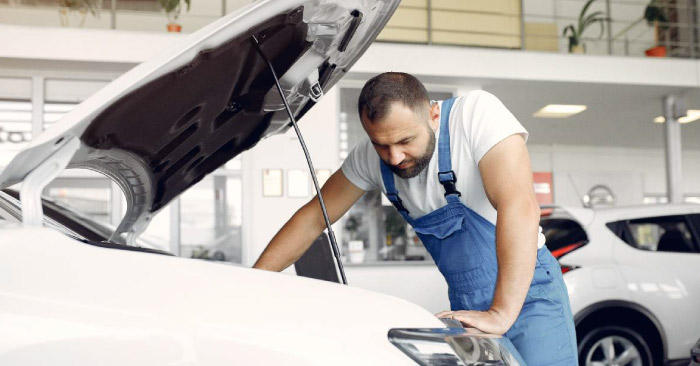Owning a car is a major responsibility. Regular care protects your safety, extends vehicle life, and reduces repair costs. Many drivers overlook simple steps that prevent breakdowns and wasted money. Here are practices you should follow.
Check Tires Monthly
Tires affect fuel efficiency, handling, and safety. Underinflated tires wear faster and increase the risk of blowouts. Use a pressure gauge once a month. The correct pressure is listed on a sticker inside the driver’s door. Replace tires when tread depth falls below 2/32 of an inch. Uneven wear signals alignment or suspension problems that need attention.
Follow Scheduled Oil Changes
Oil protects the engine from friction and heat. Old oil breaks down and loses its ability to lubricate. Follow the service schedule in your owner’s manual. Skipping oil changes leads to expensive engine repairs. Most drivers need an oil change every 5,000 to 7,500 miles, depending on the vehicle and driving habits.
Inspect Brakes Regularly
Brakes are your car’s most important safety system. Pay attention to warning signs such as squealing, grinding, or a soft pedal. If the vehicle pulls to one side during braking, schedule an inspection. Worn brake pads damage rotors, increasing repair costs. Have brakes checked once a year or sooner if symptoms appear.
Keep Fluids in Check
Your car relies on multiple fluids: coolant, brake fluid, transmission fluid, and power steering fluid. Low or dirty fluids harm system performance. Check levels monthly. Replace fluids on schedule to avoid costly repairs. For clear maintenance guidelines, review the Auto Guide from Diamond Certified.
Replace Filters on Time
The engine air filter protects against dirt and debris. A clogged filter reduces efficiency and performance. The cabin air filter affects air quality inside your car. Replace both according to your service schedule. This improves airflow and keeps your car running smoothly.
Test the Battery
A weak battery leads to starting problems. Most last three to five years. Check for corrosion on terminals and slow engine cranking. Have the battery tested during service visits. If it is near the end of its life, replace it before it fails.
Respond to Warning Lights
Do not ignore dashboard alerts. A check engine light signals issues with emissions or sensors. ABS and airbag lights mean safety systems are compromised. Prompt diagnosis prevents breakdowns and protects your safety. Use resources like Diamond Certified directory of trusted auto shops to find trusted auto shops in your area.
Track Service History
Keep records of oil changes, brake service, and inspections. Organized records help you budget for future repairs. They also increase resale value when it is time to sell your vehicle. Buyers trust a car with documented maintenance.
Know When to Call a Professional
If you notice smoke, fluid leaks, or strong odors, schedule service immediately. Small issues escalate quickly. Professional service identifies the problem and prevents higher repair costs. To learn how certified mechanics are evaluated, see Diamond Certified’s evaluation process.
Practical habits keep your car reliable and safe. By following these steps, you protect your investment and reduce the risk of costly breakdowns.































